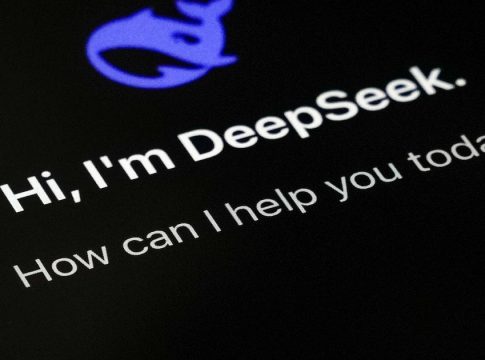The U.S.-China AI Arms Race Heats Up: New Legislation on the Horizon
A New Cold War?
In a striking development reflecting growing geopolitical tensions, U.S. lawmakers have introduced legislation aimed at blocking artificial intelligence (AI) technologies from China within federal agencies. This bipartisan initiative underscores a renewed commitment to maintaining American dominance in the rapidly evolving AI landscape, which many are now dubbing a "new Cold War."
The urgency of the situation was evident during a recent congressional hearing led by Rep. John Moolenaar (R-MI), who stated that "the future balance of power may very well be determined by who leads in AI.” This sentiment captures the escalating stakes of the U.S.-China rivalry, especially as technological prowess becomes synonymous with national security.
China’s Rapid Advancement in AI
The concern has been magnified following the emergence of DeepSeek, a Chinese startup that recently introduced an AI model comparable to those from major players like OpenAI and Google but at a fraction of the cost. This breakthrough has many in Washington worried that despite the technological embargoes on critical components, China is rapidly advancing in AI capabilities.
The competitive landscape is shifting. According to a recent Stanford University AI Index Report, the U.S. currently leads in developing premier AI models, yet China is closing the gap, with projections indicating near parity by 2024. This includes leading the world in AI-related publications and patents—a clear sign that the Asian powerhouse is on the rise.
The Ethical Divide: Democratic vs. Authoritarian AI
In addition to technical merits, the ethical implications of AI development are being fervently discussed. Jack Clark, co-founder of Anthropic, emphasized that AI systems often reflect the values of their creators. He argued that technologies built in democratic societies tend to produce beneficial applications for humanity, whereas those born in authoritarian regimes may perpetuate oppressive practices.
This ideological division adds another layer to the ongoing battle between the two superpowers, with Chris Lehane from OpenAI asserting that the competition is not just a technological race but also a struggle between democratic and autocratic values.
Legislative Moves and Export Controls
The proposed legislation would prohibit Chinese AI systems from being utilized in federal agencies, a move sponsored by representatives from both major political parties. This initiative aims not only to safeguard national security but also to ensure that foreign adversaries do not gain a foothold in sensitive government functions.
Moreover, experts have called for tighter export controls on advanced chips—essential for AI development—to prevent them from falling into the hands of Chinese firms. Mark Beall, Jr., from The AI Policy Network, highlighted existing gaps in U.S. export regulations that have allowed Chinese companies to acquire critical technology, jeopardizing American interests.
Looking Ahead
As lawmakers work to iron out the specifics of this new legislation, the implications for both nations are profound. If successful, this legislative effort could effectively shape the future of AI development and its ethical framework in the U.S., contrasting sharply with the fast-paced advancements seen in China.
Only time will tell how this ongoing competition will unfold, but one thing remains clear: the global race for AI supremacy is intensifying, and the stakes have never been higher. Whether this translates into a technological advantage or a clash of ideologies will determine the course of AI—and, by extension, global politics—for years to come.

Writes about personal finance, side hustles, gadgets, and tech innovation.
Bio: Priya specializes in making complex financial and tech topics easy to digest, with experience in fintech and consumer reviews.

